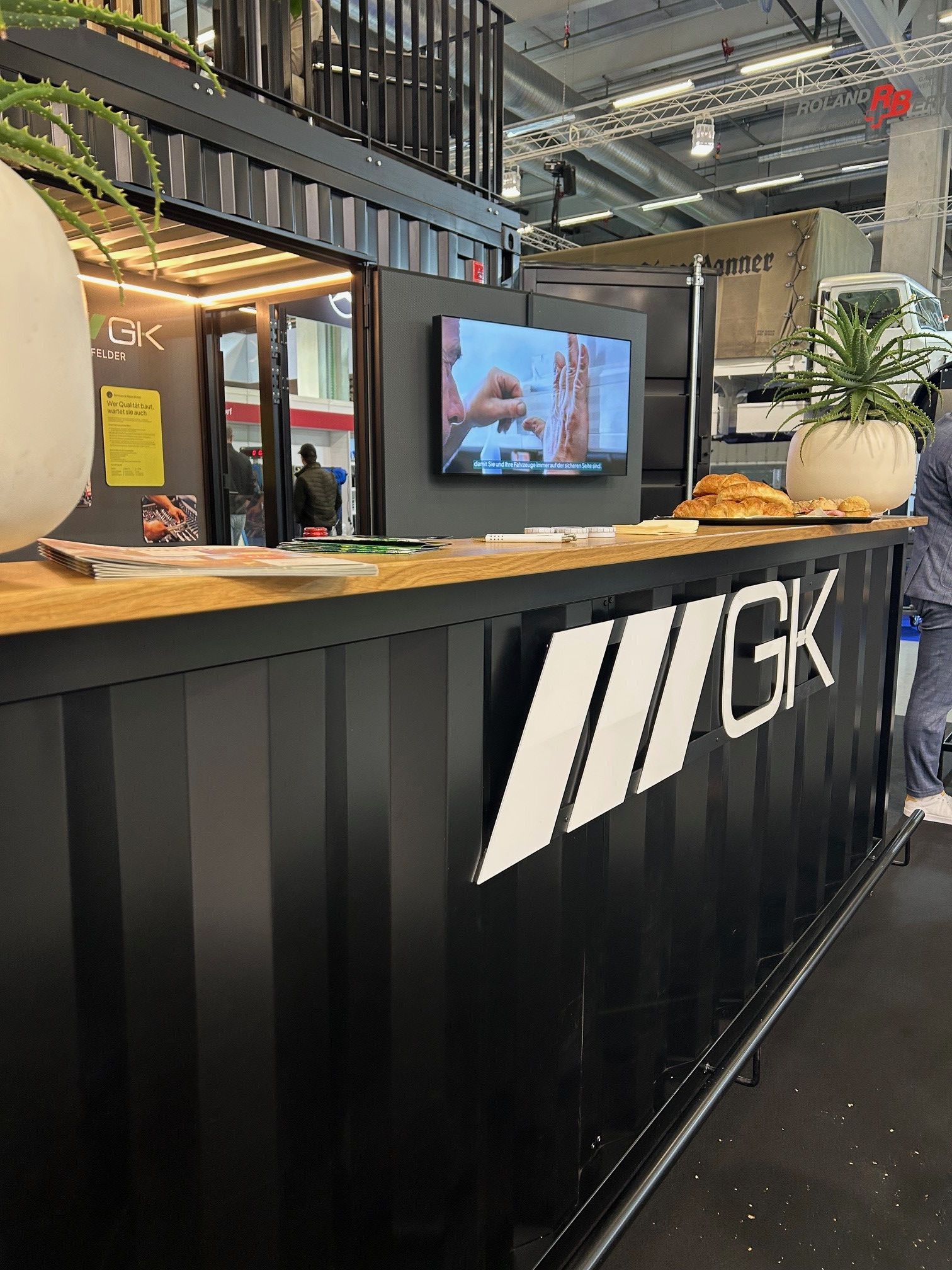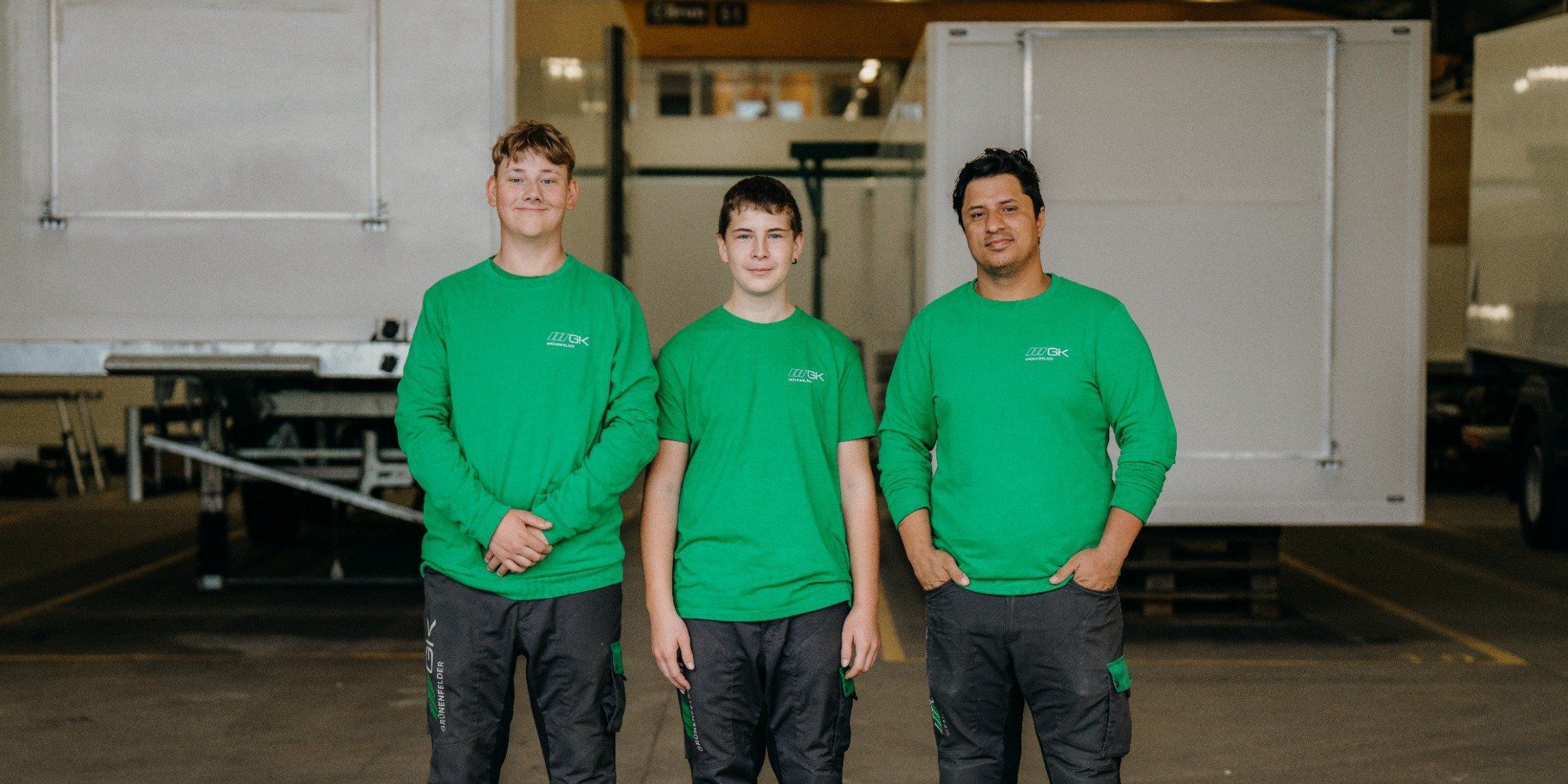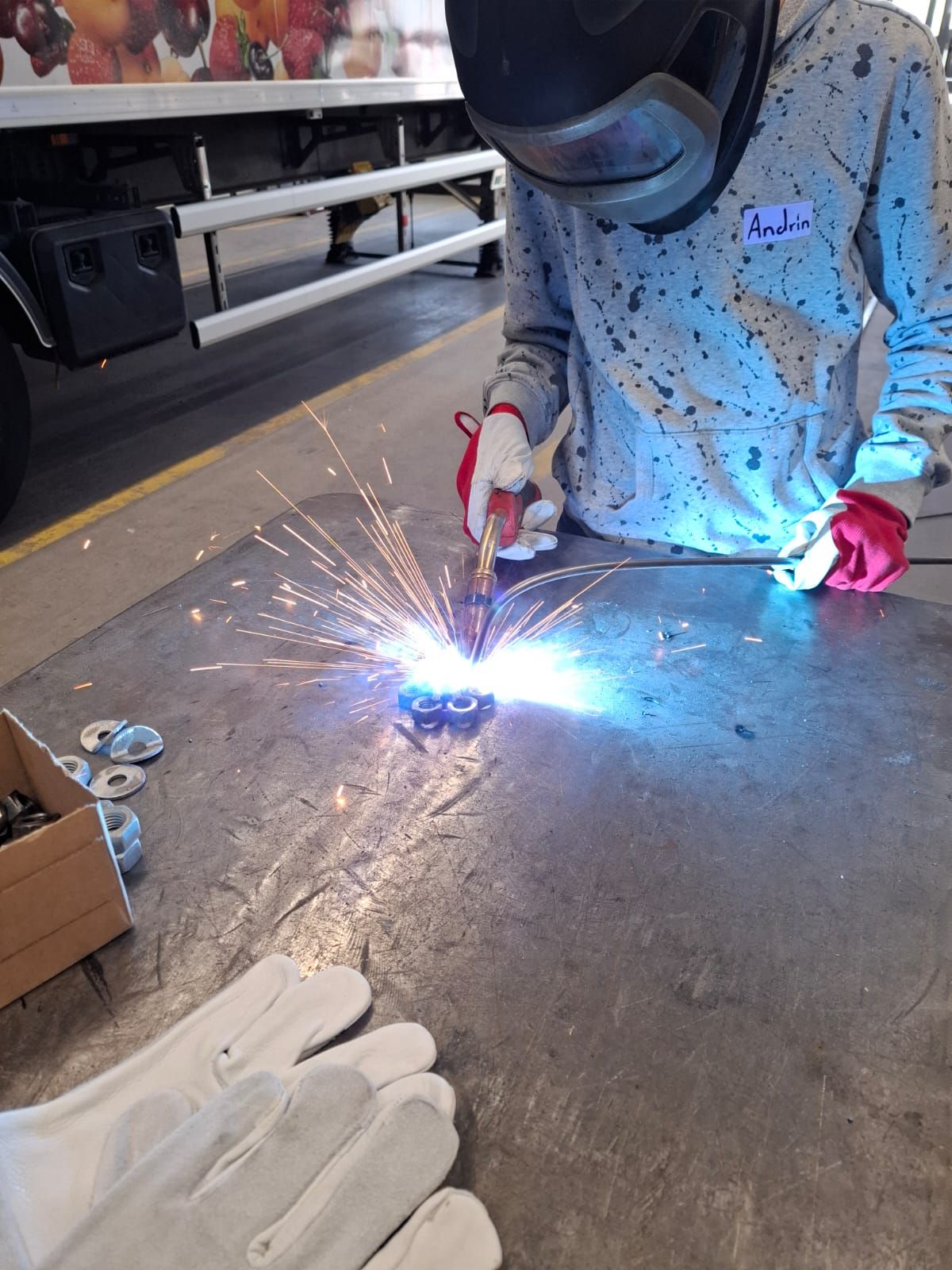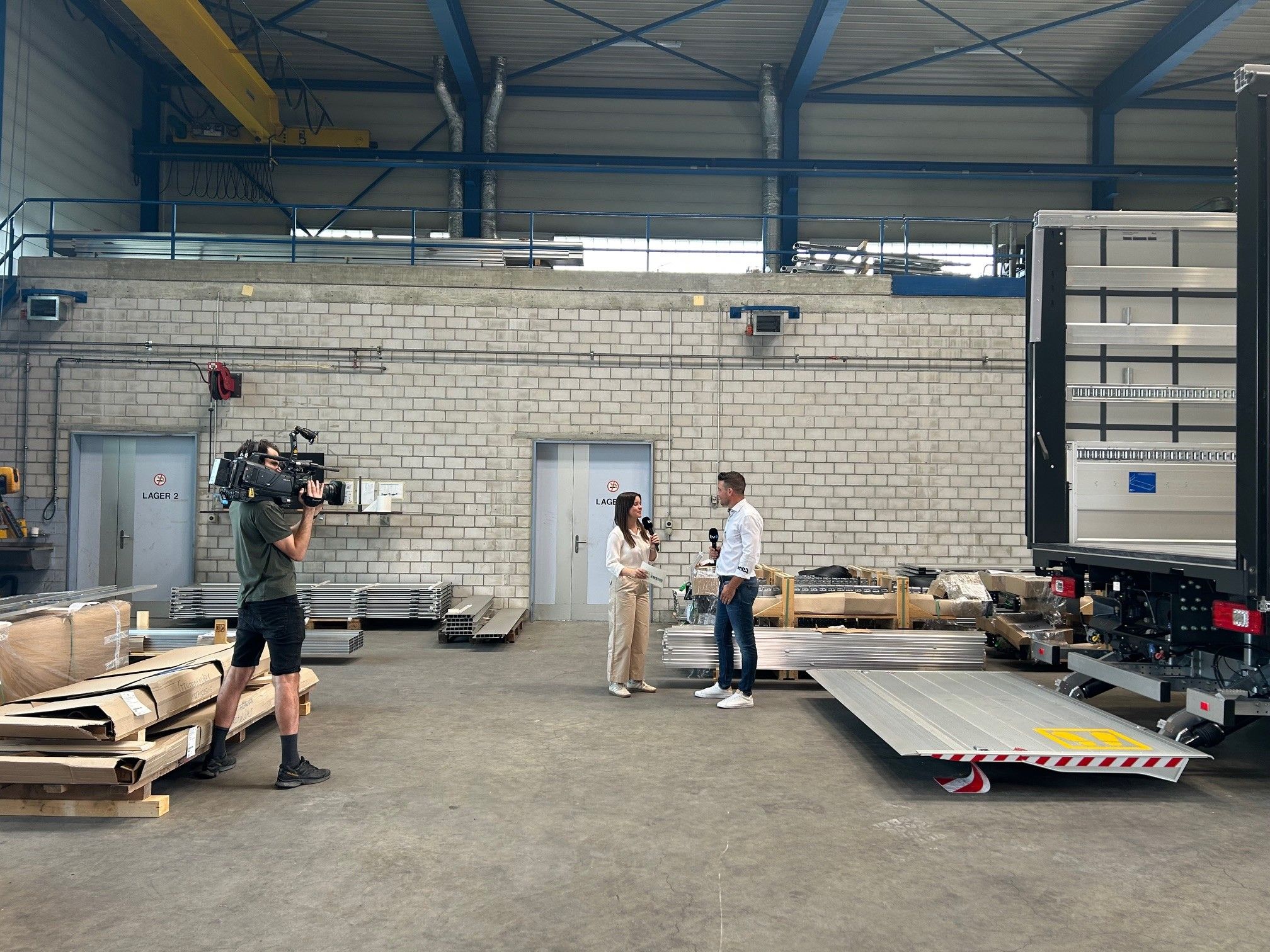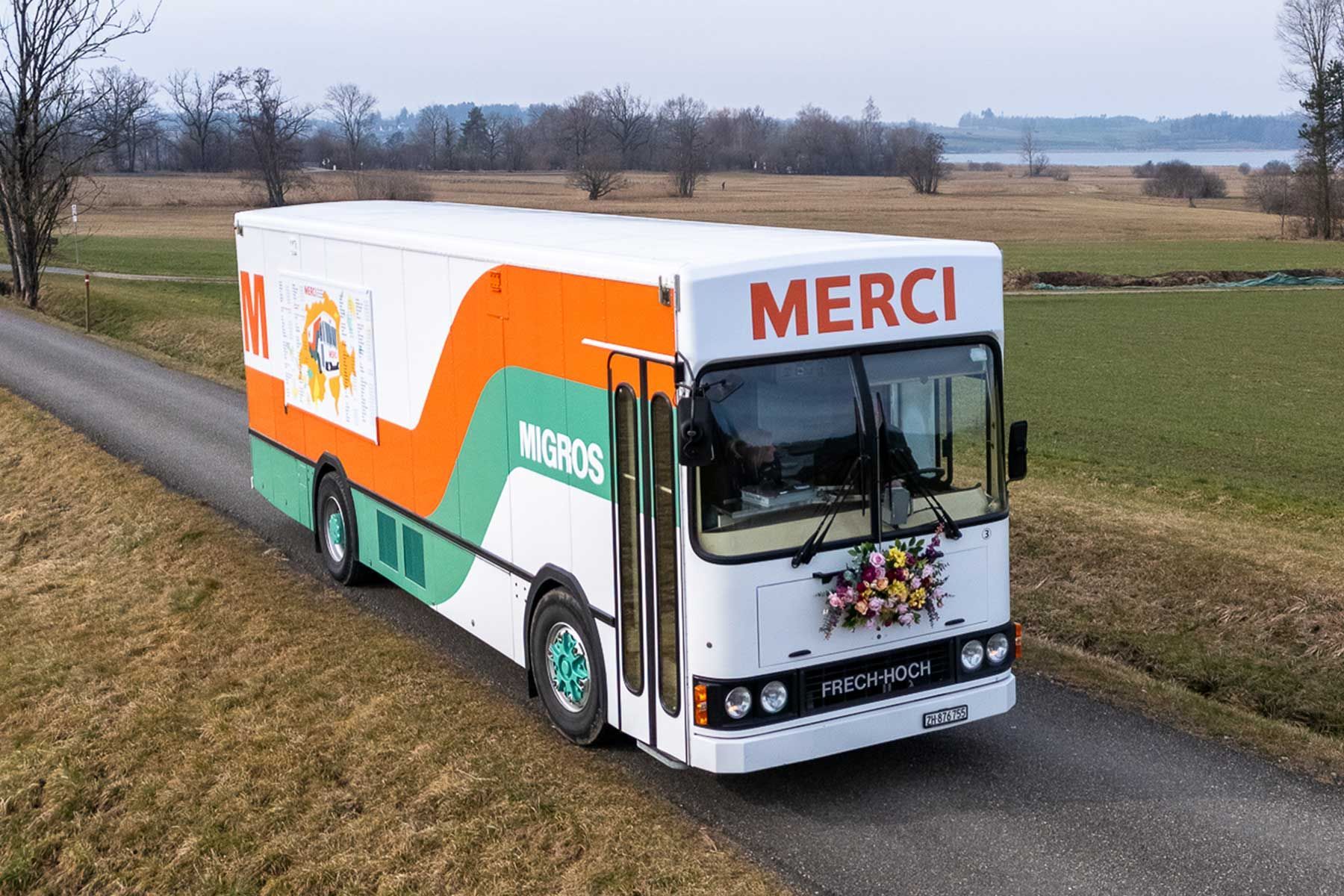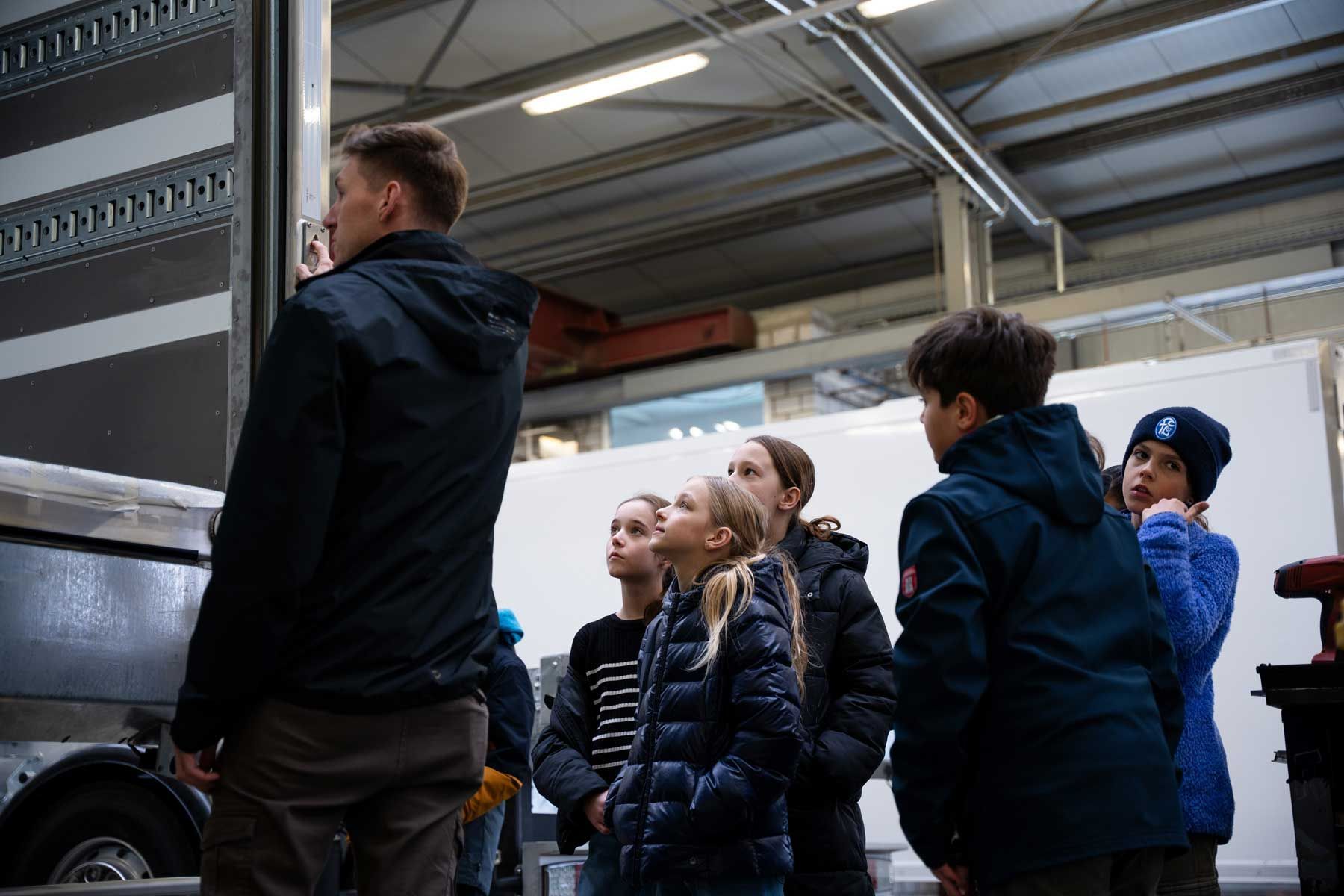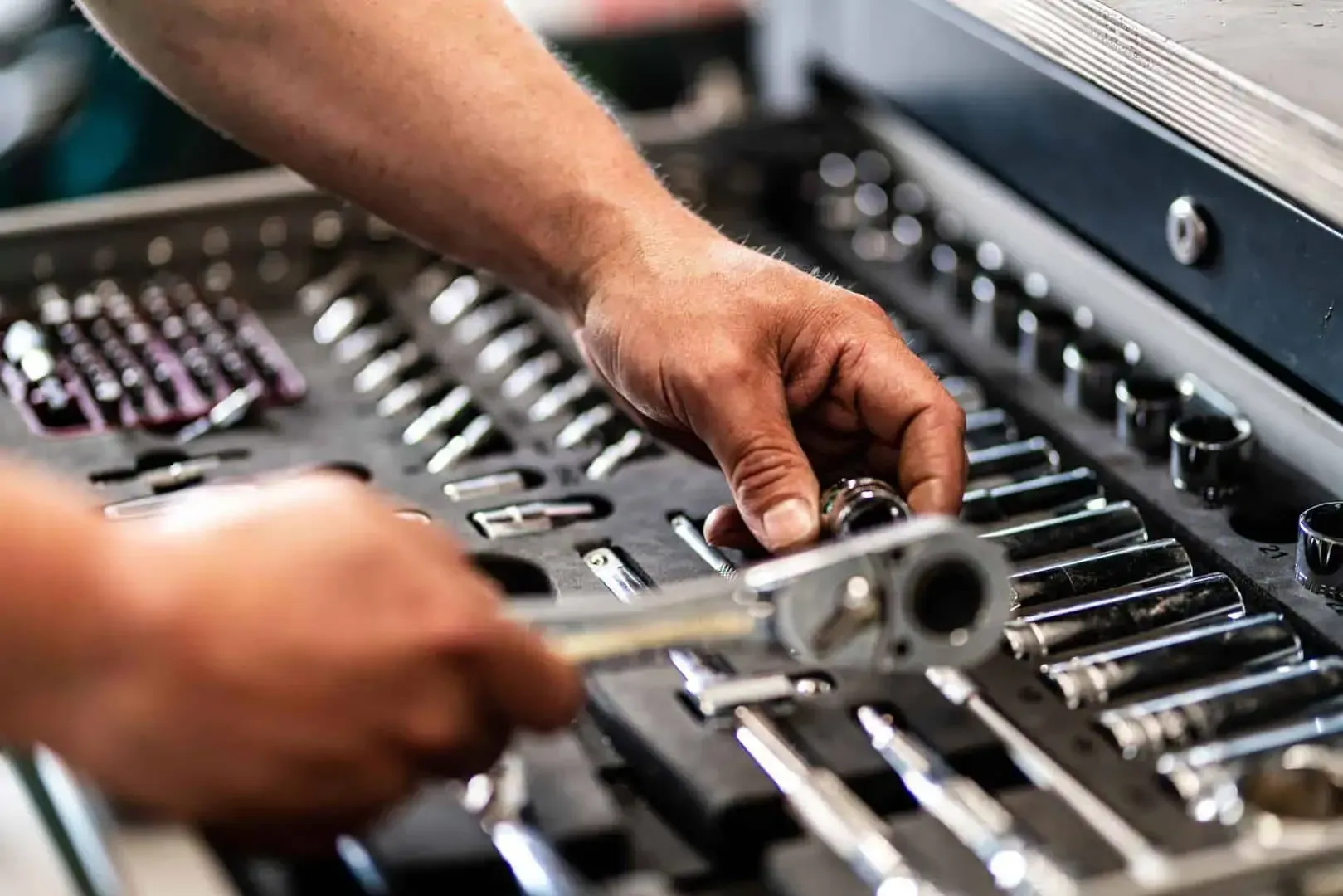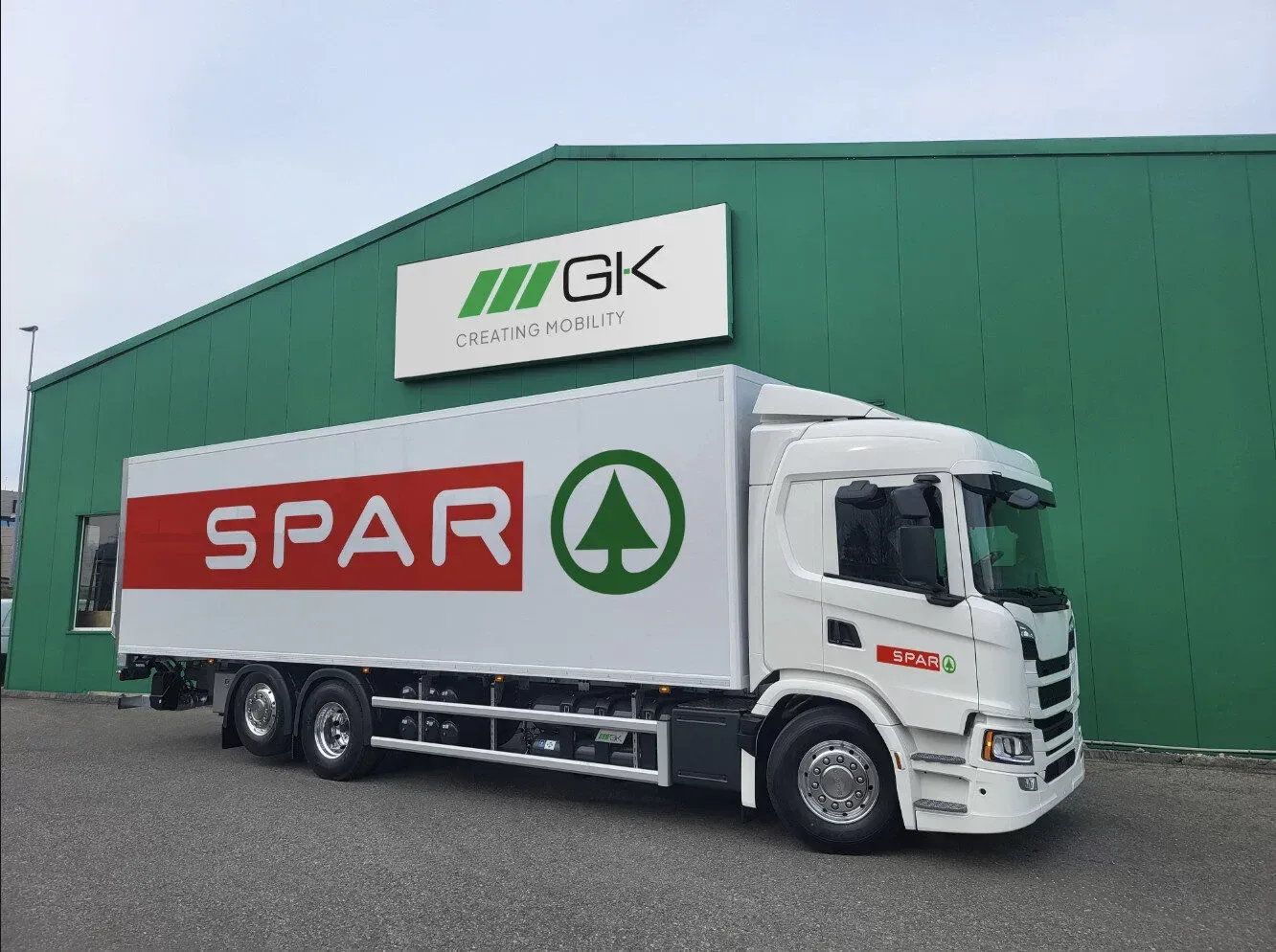
May 26, 2025
On the move with biogas: sustainable logistics for Spar Handels AG
On the road with biogas: Spar Handels AG relies on fossil-free transport solutions to supply its stores - implemented by GK Grünenfelder AG. The recent handover of another CNG-powered vehicle marks a further step towards a more sustainable food supply.
The transportation of food is one of the most demanding disciplines in logistics - not only because of the sensitive freight, but also in view of the responsibility for the environment and climate. Spar Handels AG in St. Gallen is meeting this challenge with a forward-looking concept: regional fresh food transportation with low-emission vehicles powered by biogas instead of diesel.
With the third GK refrigerated body for a CNG-powered truck, the retail giant is further equipping itself for a fossil-free future. And the commitment will not end with just three vehicles - further deliveries are already planned.
CNG with biogas: CO₂-neutral thanks to natural cycles
The focus is on the use of compressed natural gas (CNG) - in this case obtained entirely from renewable biogas. Unlike fossil fuels, biogas is based on natural raw materials such as organic waste, which means that only as much CO₂ is released during combustion as was previously absorbed from the atmosphere by plants. The result: a virtually climate-neutral transportation process.
CNG also has other convincing advantages:
- Reduced particulate matter and nitrogen oxide emissions
- Significantly quieter operation compared to diesel drives
- Stable fuel prices and a steadily growing network of filling stations in Switzerland
The vehicle: sustainability meets function
The model presented shows how performance and ecology can be combined in vehicle construction:
- 3-axle Scania with CNG drive
- 23 pallet load volume - ideal for daily goods handling
- DL 1500 lifting platform for more efficient loading and unloading
This solution was individually designed and built by GK Grünenfelder in Kriessern - tailored to the logistical requirements of Spar Handels AG.
Taking responsibility together
The cooperation between Spar Handels AG and GK Grünenfelder AG is exemplary of a growing movement in the Swiss logistics sector: acting economically and taking responsibility at the same time. By integrating low-emission drives into existing supply chains, both companies are demonstrating that sustainability in fresh produce logistics is no longer an issue for the future, but can already be implemented today.


